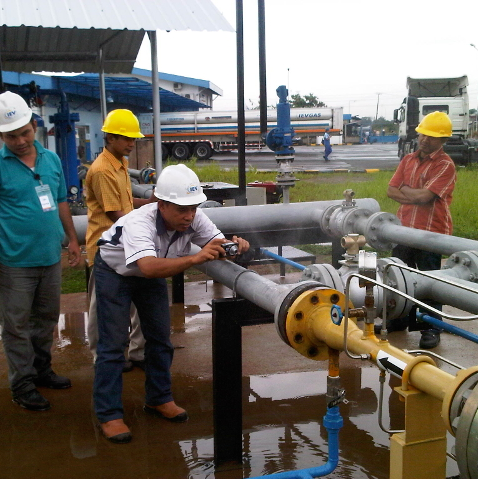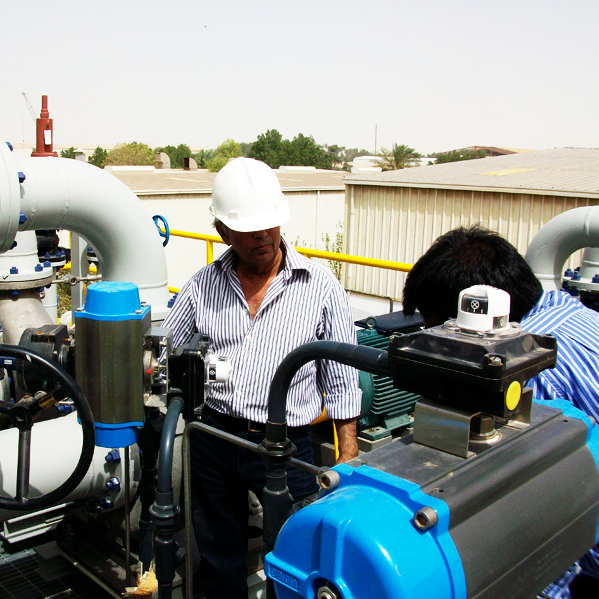
Marine Inspection
RICI has a team of Master Marines, Chief Engineers, and Chief Officers for Marine Inspections. Our experience includes Stevedoring, bulk cargo handling, and insurance. Our specialty includes periodic inspection, tank inspection, cargo inspection, and container inspection.
Marine inspection is often associated with marine insurance, damage and salvage, accident and fraud investigation as insurers generally lack the training and skills required to perform a detailed assessment of the condition of a vessel. Marine surveyors are hired on a fee basis by customers seeking insurance directly and maintain professional autonomy in order to provide an unbiased view. Independent marine surveyors are often employed by the clients of marine insurers to provide evidence in support of damage claims made against the insurer. Insurance companies cannot require customers to use specific marine surveyors and risk legal scrutiny and potential recourse if they impose surveyor requirements.
RICI Marine Inspection Services include:
- Cargo Inspections
- On/Off hire Condition Survey of the vessels
- Containers inspections
- Bulk and Liquid Cargo Analysis
- Hull and Machinery Survey
- Draft survey
- Ship’s hold and Tanks Inspections
- Corrosion surveys
Risk Based Inspection Services
RICI Risk-Based Inspection (RBI) services are used to avoid or minimize unplanned shutdowns for oil and chemical plants. Risk-based inspection (RBI) is the process of developing an inspection plan of the risk of failure of equipment. RICI inspectors work with the client to come up with an effective solution for ensuring longevity of equipment in oil and chemical plants and minimizing downtime. This is done by analyzing the likelihood and consequences of failure, and developing a cost-effective inspection and maintenance program. RICI follows the API 580 standard to deliver RBI inspection by following the industry best practices.
The information gained from this process is used to identify (a) the type of damage that may potentially be present, (b) where such damage could occur, (c) the rate at which such damage might evolve, and (d) where failure would give rise to danger. Areas at high risk usually have credible damage mechanisms combined with high consequences from structural failure, the release of hazardous substances or stored energy. A suitable inspection scheme will deploy techniques at a frequency that provides adequate confidence about the condition, taking account of the damage mechanisms and the reliability of the inspection techniques used.
Industry sees RBI as a way to obtain economic benefits from extended run lengths and as means of using inspection resources more effectively from the use of automated NDT or non invasive inspection schemes.
Our RBI inspection services include:
- Assessment of process operations that will impact your production, operation, material integrity and degradation rates
- Determination of the remaining lifetime of your assets
- Gap analysis
- Identification of operational risks, using recognized industry standards
- Identification of the appropriate inspection intervals
- Review of technical specifications and construction materials
- Specification of risk ranking level and determination of the respective risk acceptance level
- Specification of the necessary inspection and maintenance tasks


Mechanical Integrity Inspection
Mechanical Integrity is a component of both Process Safety Management and Risk Management Programs. The objective of RICI Mechanical Integrity program is to ensure equipment failure does not release hazardous substances. MI covers the proper design, fabrication, construction/installation and operation of equipment throughout the entire process life cycle.
Mechanical Integrity (MI) is a component of both Process Safety Management and Risk Management Programs. The objective of RICI Mechanical Integrity program is to ensure equipment failure does not release hazardous substances. MI covers the proper design, fabrication, construction/installation and operation of equipment throughout the entire process life cycle.
RICI specializes in Positive Material Identification (PMI) is the analysis of a metallic alloy to establish composition by reading the quantities by percentage of its constituent elements. RICI works with clients to implement a safety design to the appropriate level of detail. Our personnel assist in the evaluation of inspection and testing results, training, and the implementation/configuration of a mechanical integrity documentation system.
RICI Mechanical Integrity Services:
- Ultrasonic Thickness Testing Measurements
- Magnetic Particle Examination
- Visual Inspection
- Above & Below Ground Storage Tanks (API 650)
- Corrosion Surveys
- Boiler Inspection
- Ultrasonic Shear Wave Flaw Detection
- Dye Penetrant Examination
- Radiography
- On-Stream Process Piping
- Pressure Vessel Inspection
- Positive Material Identification (PMI)
Asset Integrity Management
Asset integrity, or asset integrity management systems (AIMS) is the term for an asset’s capacity to run effectively and accurately, whilst also protecting the wellbeing of all personnel and equipment with which it interacts – as well as the measures in place to assure the asset’s life cycle.
RICI provides specialists and engineering support in all areas of Asset Integrity Management, including design, process safety, mechanical integrity, inspection and maintenance, operational and process support, corrosion, metallurgy, and risk analysis to provide you with Total Quality Assurance.
Our experts have in-depth knowledge of the oil, gas, petrochemical, power, renewable energy, civil and infrastructure fields, providing Asset Integrity Management solutions clients need to achieve productivity gains, while meeting safety and environmental concerns.
Our asset integrity management programs include:
- Development Management
- Implementation
- Gap Analysis
Plant integrity, safety and reliability are major concerns to all plant operators and managers. The primary objective of integrity inspection is to maintain assets in a fit-for-service condition while extending equipment lifespan in a reliable, safe, and cost-effective manner. The plant/ asset integrity, safety and reliability is based on the detailed steps and techniques that increases operational efficiency, reduces downtime, and improves revenues and production. The structural analysis is key to ensuring reliability. The plant operators and managers shall mitigate risks of damage to plant and interruptions to production alongside the risks to people and the environment. Both should be reduced in line with good risk management practice.
RICI covers the following areas to ensure high levels of plant integrity, safety and reliability:
- Is Plant fit for purpose:
- Design studies
- HAZID Studies
- HAZOP Studies
- Assets Integrity, Safety & Reliability studies
- Facility has resilience to accidents:
- Plant layout
- Fire and explosion protection
- Quantitative Risk Assessment
- Plant control systems:
- Enable appropriate precautionary shut-down or recovery operations and avoid spurious trips
- Reliability and Availability Studies
- RAM studies
- Fault tree Analysis
- SIL standards

At RICI Company, we offer comprehensive Third Party Inspection Services to ensure the safety, quality, and efficiency of your operations. Our services include Vendor Inspection & Expediting, where we inspect and evaluate your suppliers’ products and processes to verify compliance with industry standards, ensuring timely delivery of high-quality materials and components. In addition, we provide Lifting Equipment Inspection to assess the integrity and performance of cranes, hoists, and other lifting equipment, ensuring their safe and reliable operation. Our Non-Destructive Testing (NDT) Inspection services complement these offerings, enabling the detection of flaws and irregularities in various materials and components without causing damage. In
Trust RICI Company to safeguard your assets and maintain the highest levels of quality and safety in your operations
You can find more details for each of our offered services by clicking the page which you are interested in below:
